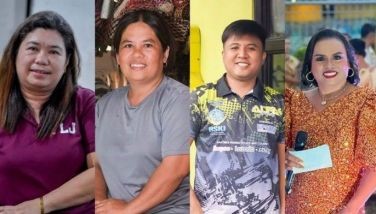Find one passion and follow it forever

Over the past 30 years, researchers across a wide range of disciplines have acquired a lot of knowledge about things that are occurring at the unconscious level: how we deal or connect to people, how our characters and values form, and how we view the world. The book The Social Animal: The Hidden Sources of Love, Character, and Achievement by New York Times op-ed columnist David Brooks collects research from different areas and synthesizes the data into one story to give us a better sense of who we are, how we conduct ourselves and why we behave the way we do.
The book is an ethical and societal tract, but Brooks has attached it to the life stories of two make-believe people — Harold and Erica — whose characters were used to “assemble the evidence for a certain conception of the human mind, the wellsprings of action and the causes of success and failure in life, and to draw implications for social policy.”
Harold came from a rich family. His parents mingled with Fulbright scholars and scheduled their vacations in stylish resorts. He went to good schools, had an above-average intellect, and was gifted with athletic dexterity. As a kid, he had strong social skills and was well liked. Growing up, he developed into a more serious adult than one might have expected. He was not offensively ambitious, but eventually had a flourishing career as a writer and social commentator.
Erica is the tough and spirited daughter of socially marginalized, unmarried parents. She is the product of an interracial union. Her mother is Chinese, her father Mexican. She came from a different world compared to Harold, growing up poor. For the most part, her father was absent from her life and her mother was largely beset with problems. Her universe changed when she was admitted to a charter school that immersed underprivileged youths in a demanding culture with the opportunity to go to elite colleges and reap financial success. She pushed herself upward and, after a stellar business career, she became a high official in the Democratic presidential administration in the USA, and eventually a regular attendee at worldwide conferences in Davos.
Harold and Erica’s formative years, their ultimate encounter, their marriage and individual professions portrayed their psychological depths. Erica committed adultery once, and was trounced by shame, which provided a handle for the premises of moral psychology. Harold’s relationship with his mom during his infanthood was used to illustrate the theories of inborn qualities and mental development. There are many more suppositions, but the illustrations and examples boil down to general claims about human nature and society.
The main thesis of the book is that there are two levels of the mind — the unconscious and the conscious — and that the unconscious is much more important than the conscious in determining what we do. Brooks described the contents of the unconscious mind as “emotions, intuitions, biases, longings, genetic predispositions, character traits, social norms, sensations, perceptions, drives and needs.” The work of the human mind is vastly more unconscious or automatic in this sense than conscious and deliberate.
Brooks’ work makes us understand the roles of these two mental spheres. If the conscious is logical and linear, the unconscious is associative — it helps us create these maps of the world. “If you have trouble making a tough decision between two options, tell yourself you’ll flip a coin, but don’t go by the results of the flip, go by your reaction to the results,” Brooks averred. Here are other salient points of the author’s fascinating study:
Non-deliberate emotion, perception and intuition are much more important in shaping our lives than reason and will. Emotion assigns value to things and reason can only make choices on the basis of those valuations. The deeper level of the mind also holds a great store of information, coming from genetics, culture, family and education. Our thoughts are profoundly molded by this long historic flow, and none of us exists in isolation from it.
We are really good at talking about material things, but we are really bad at talking about emotions. We are really good at talking about skills and safety and health, but we are really bad at talking about character. As famous philosopher Alasdair MacIntyre declared, “We have the concepts of the ancient morality of virtue, honor, and goodness, but we no longer have a system by which to connect them.” And this has led to a shallow path in politics, business, and a whole range of human endeavors.
Human nature is not founded on religion or philosophy, but in the examination of the mind. That includes the use of neuroscience behavioral economics, psychology, and sociology, which gives us a new view of human nature anchored on three key insights. The first insight is that while the conscious mind writes the story of the human species, the unconscious mind does most of the work. The human mind can take in millions of pieces of information a minute, but it can be consciously aware of only about 40. And this leads to peculiarities.
The second insight is that emotions are at the center of our thinking. People with strokes and lesions in the emotion-processing parts of the brain are quite helpless. Emotions are not separate from reason, but they are the foundation of reason. And so reading and educating our emotions is one of the central activities of the intellect. It processes the way we think, and tells us what to mark. The third insight is that we are not primarily self-contained individuals. We are social animals, not rational animals. We emerge out of relationships, and are deeply interwoven with one another. And so when we see another person, we reenact in our own minds what we see in their minds. When we watch a car chase in a movie, it’s almost as if we are subtly having a car chase. When we watch pornography, it’s a little like having sex, though probably not as good.
Reason is often weak and our sentiments are often trustworthy. When we think about human capital we think about the things we can measure easily — grades, educational degrees, or the number of years in school. What it really takes to do well, and to lead a meaningful life, are things that are deeper — things we don’t really even have words for. Brooks’ research pointed to an understanding of the concepts of “mindsight,” “avoidantly attached people,” “metis” and “limerence.” “Mindsight” is the ability to enter into other people’s minds and learn what they have in their heads. “Avoidantly attached” individuals are those who have trouble relating to other people. They go through life like sailboats tacking into the wind — wanting to get close to people but not really having ways to do it. “Metis” is a Greek word that means “street smarts.” It’s our sensitivity to the physical environment — to pick out patterns in an environment and allow us to develop substantial ideas. “Limerence” is drive and motivation. The conscious mind hungers for success and prestige. The unconscious mind hungers for moments of excellence, when the skull line disappears and we are lost in a challenge or a task; when a craftsman feels lost in his craft; when a naturalist feels at one with nature; when a believer feels at one with God’s love. And love is felt best when lovers are fused.
Harold and Erica were not born geniuses. They had no special physical or mental gifts, yet they attained success and lived blessed lives. How did they do it? They had good characters — energetic, honest, dependable, persistent, and confident. They had street smarts, too. They knew how to read people, situations and ideas. Their story emphasized the role of the inner mind — the unconscious realm of emotions, predispositions, character traits and social norms. The realm where character is formed and street smarts grow.
Brooks proclaimed, “People who succeed tend to find one goal in the distant future and then chase it through thick and thin. People who flit from one interest to another are much, much less likely to excel at any of them. School asks students to be good at a range of subjects, but life asks people to find one passion that they will follow forever.”
* * *
Email bongosorio@yahoo.com or bong_osorio@abs-cbn.com for comments, questions or suggestions. Thank you for communicating.



















